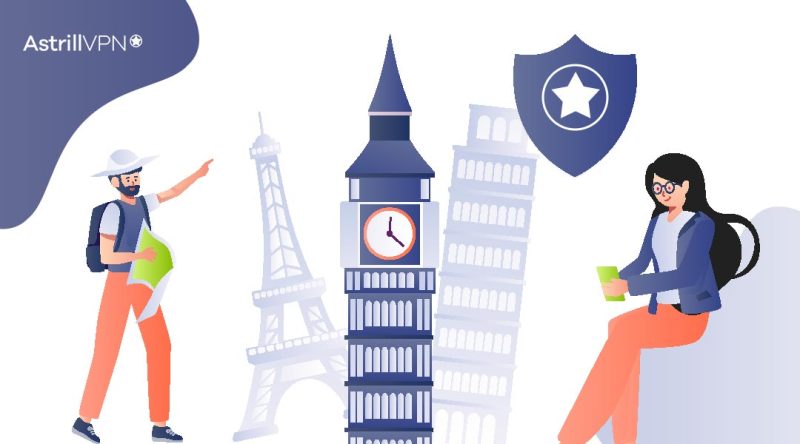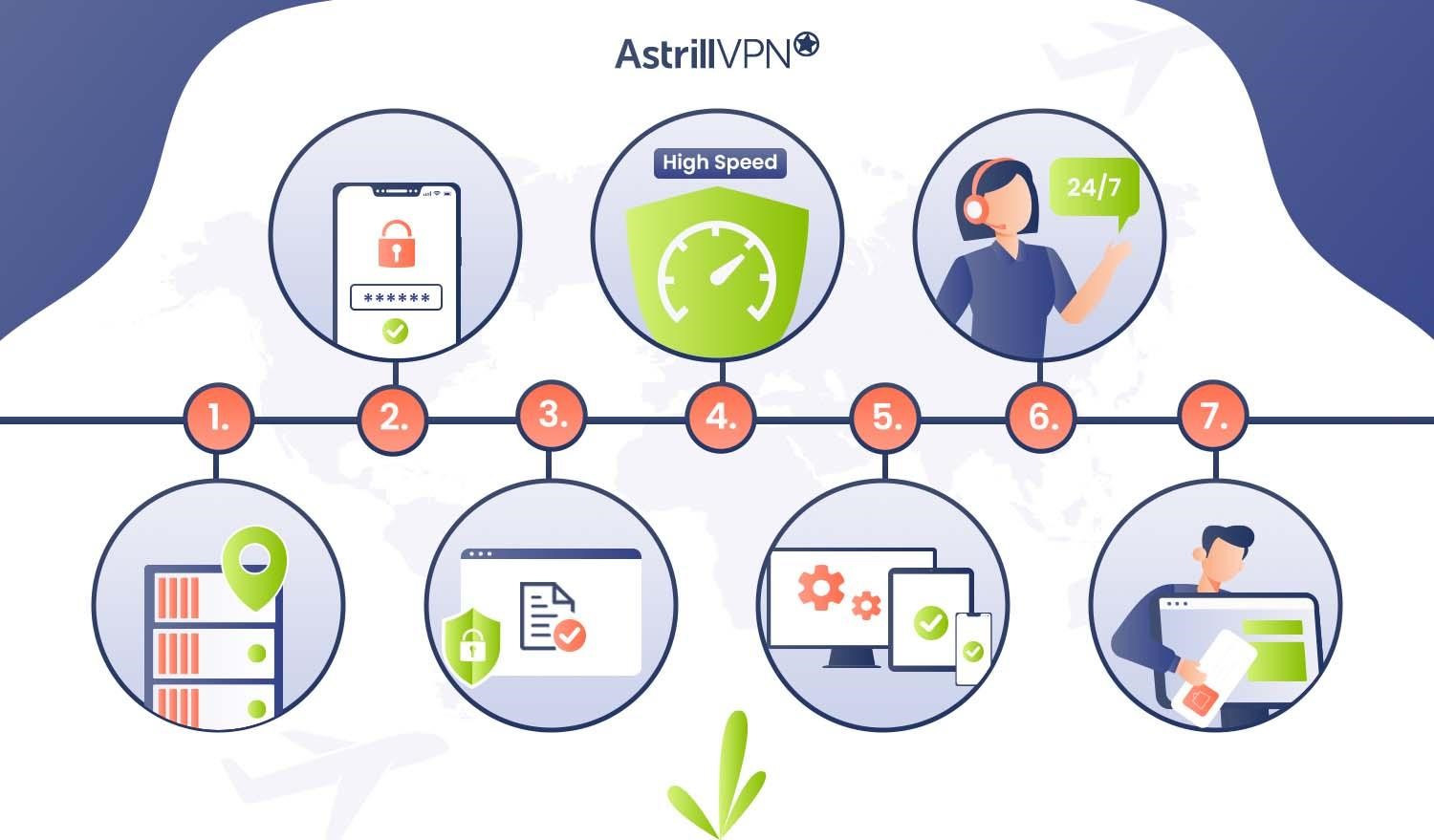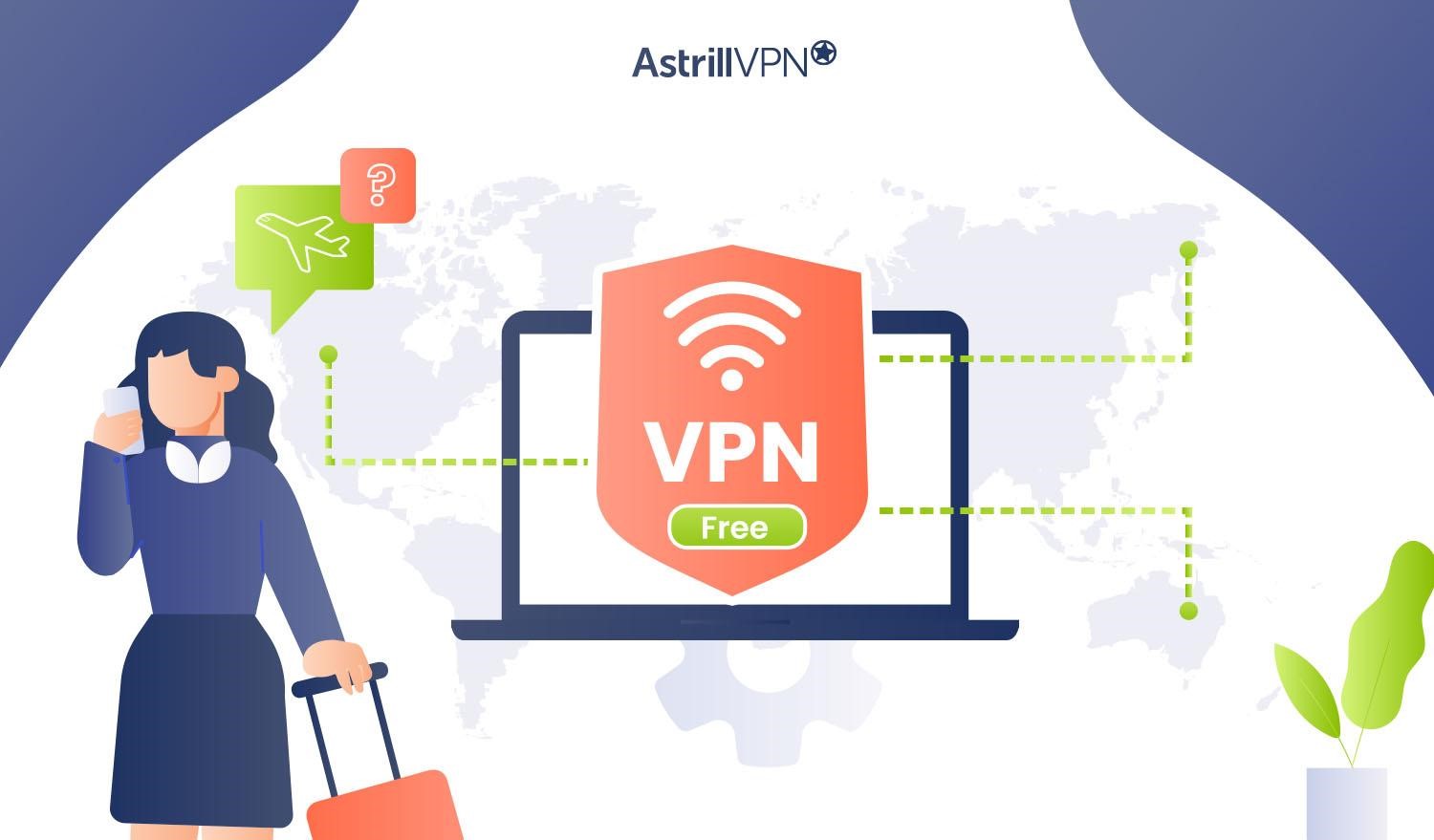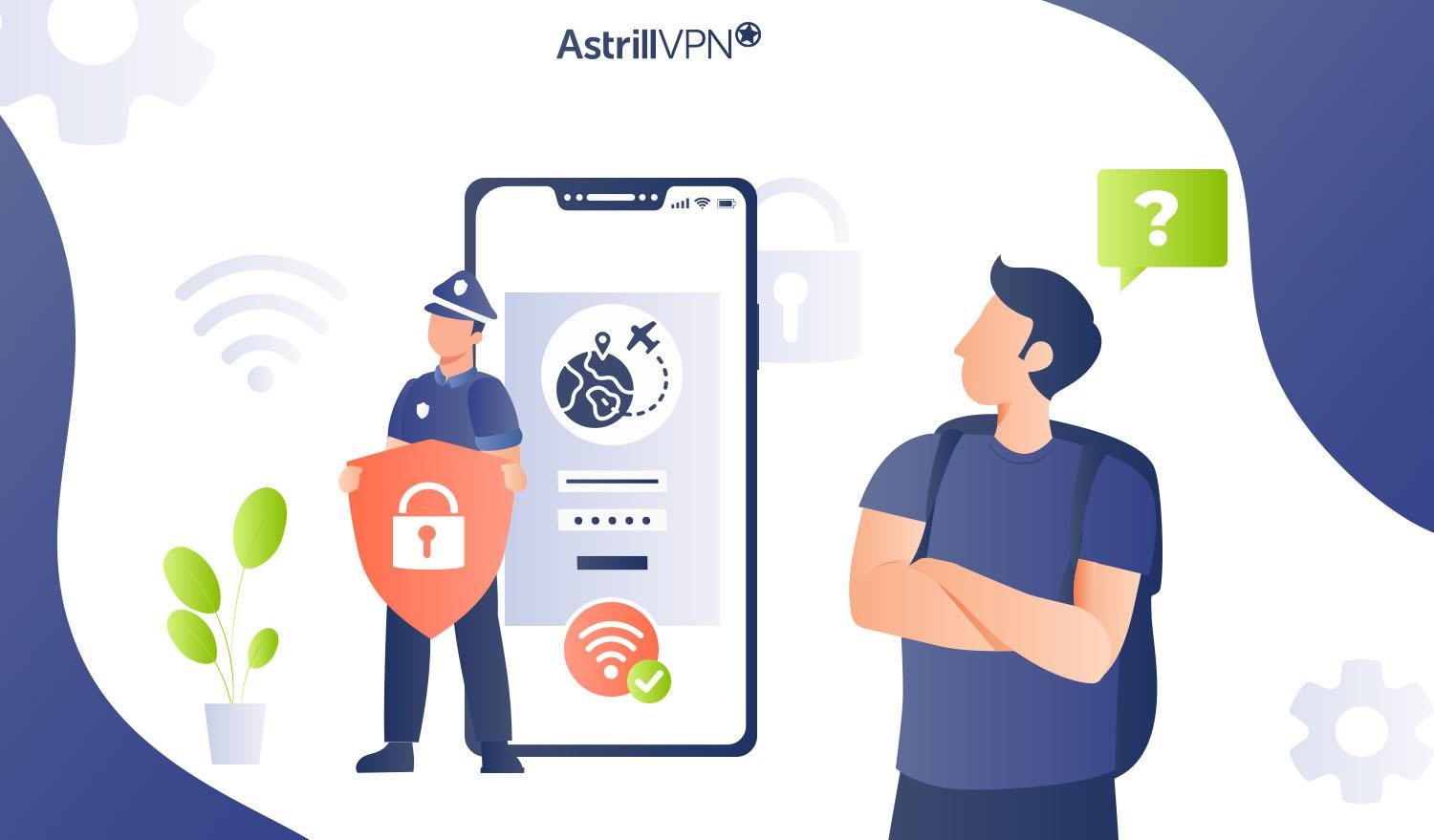Best VPN for Traveling: Secure & Private Internet Anywhere

Arsalan Rathore

Traveling opens doors to new experiences and exposes you to significant cybersecurity risks. Nearly 20% of travelers fall victim to cybercrime abroad, often due to vulnerabilities like unsecured public Wi-Fi networks at airports, hotels, or cafés. These networks, while convenient, can quickly become a gateway for hackers to intercept sensitive information.
Safeguarding your digital and physical assets ensures your journey remains smooth and stress-free. From protecting your travel documents to securing your online accounts and devices, this guide will walk you through the critical measures every traveler must take to stay safe in an increasingly connected world.
Table of Contents
What is a VPN for Traveling, and Why Do You Need It?
Any serious traveler should have access to a VPN because it functions as your online bodyguard, ensuring your internet activities stay secure and confidential when you move.
Following are some reasons why you need a travel VPN:
1. Privacy and Security
Connecting to free public Wi-Fi networks is an everyday necessity while traveling, whether at a hotel, an airport, a coffee shop, etc. While these networks may be more accessible, they tend to be less secure, leaving you open to cyber attacks.
With a VPN while traveling, your online traffic is encrypted, making it extremely difficult for hackers to access your data. This encryption provides a protective barrier for your sensitive data, login credentials, and money dealings.
2. Bypassing Geo-Restrictions
Streaming services, websites, and applications are often blocked when users are outside their native country. By connecting to a server in your own country, you can fool websites into thinking you’re back home when using a VPN for traveling. This provides you access to content unavailable in your current location.
3. Anonymous Browsing
A VPN for traveling hides your IP address, making it difficult for websites and advertisers to track your online activities. It also prevents government agencies or Internet service providers (ISPs) in some countries from tracking your surfing activity. This anonymity offers a safer online experience while protecting your freedom of expression, which is especially important in countries with stringent internet rules.
4. Data Protection
A traveling VPN comes with a no-logs policy, which means it doesn’t record or store your online activities. This commitment to privacy further ensures that your data remains confidential and isn’t subject to unnecessary retention.
Key Features to Look for in a Travel VPN

Selecting the right VPN for your travel needs is a critical decision, as not all VPNs are well-suited for the unique challenges of globetrotting. Here’s an in-depth look at what you should consider when choosing a VPN for your travels:
1. Server Locations
An extensive network of servers is essential for travelers. AstrillVPN has VPN servers in 57 countries. The more server locations available, the easier it is to access geo-restricted content and maintain a fast, stable connection. This diversity in server options also allows you to connect to a server nearest to your current location for optimal performance.
2. Strong Encryption
The security of your data is paramount, especially when connecting to unsecured public Wi-Fi networks while traveling. AstrillVPN uses strong AES-256-bit encryption to protect your internet traffic. Robust encryption makes it extremely challenging for cybercriminals to intercept your data, providing you peace of mind.
3. No-Logs Policy
Protecting your privacy is a fundamental aspect of VPN usage. AstrillVPN has a strict no-logs policy, meaning it doesn’t collect or store information about your online activities. This commitment to data privacy ensures that your online behavior remains confidential and untraceable.
4. High Speeds
Slow connection speeds can be frustrating, especially when traveling and relying on the internet for various tasks like streaming, working, or staying in touch with loved ones. AstrillVPN offers high-speed connections, allowing you to browse, stream, and download without interruptions or buffering issues.
5. Multi-Platform Compatibility
Travelers use various devices, from smartphones and laptops to tablets and routers. To ensure that all your gadgets are protected, AstrillVPN has apps compatible with multiple platforms and operating systems such as android, mac, windows and linux. This versatility lets you secure all your devices with a single VPN subscription.
6. 24/7 Customer Support
When you’re on the road and facing technical challenges or have questions about your VPN, access to 24/7 customer support can be a game-changer. It ensures you can get assistance or answers to your queries anytime, regardless of your time zone or location.
7. User-Friendly Interface
Travelers often need a VPN that’s easy to use, even if they aren’t tech-savvy. AstrillVPN’s user-friendly interface and straightforward settings can help you quickly connect to servers, choose your virtual location, and customize your preferences without hassle.
Simple Steps to Setup VPN While Traveling
- Subscribe to AstrillVPN and download its app for your device.
- Install the AstrillVPN app and open it.
- Select any VPN server from the list and turn on the connection.
- Your IP will now be changed, and you can access anything easily.
Does a VPN for Traveling slow down my internet speed?
Internet speed drops are a significant fear among those considering using a VPN while traveling. The short answer is that utilizing a VPN will slow down your connection speed slightly, but only slightly. Here are some factors that may affect the speed:
1. Encryption Overhead
Using a VPN involves encrypting your internet traffic and routing it through a secure tunnel, which can affect your connection speed. However, with advanced VPN protocols and optimized servers, any slowdown is often minimal and unnoticeable during regular browsing, streaming, or other online activities.
2. Server Location
The physical distance between your location and the VPN server can influence speed. If you’re connecting to a server located far from your actual location, it may introduce some latency. To mitigate this, choose a server closer to your current location to ensure faster performance.
3. Internet Speed Baseline
Your baseline internet speed also plays a significant role. If you have a fast internet connection, even with a slight reduction due to the VPN, your speed should still be sufficient for regular online activities like web browsing, email, and streaming.
4. Server Load
Server load refers to the number of users connected to a specific VPN server at any given time. If a server is heavily loaded with users, it can affect speed. AstrillVPN offers Dedicated IPs that allow you to have your own server without worrying about any load on bandwidth.
5. Protocol Selection
AstrillVPN offers different encryption protocols, and some may impact speed more than others. For faster speeds, consider using protocols like StealthVPN or WireGuard, known for their efficiency and speed.
Where Are VPNs Legal and Illegal?
Countries where VPNs are Legal
In the majority of countries, VPNs are legal and widely used. These countries recognize the importance of VPNs for online security, privacy, and business purposes. Users can freely subscribe to and use VPN services without legal repercussions.
Western democracies, including the United States, Canada, the United Kingdom, and countries in the European Union, generally permit the use of VPNs. While there may be some regulations and data retention policies, VPN usage for personal or business purposes is widely accepted.
Several countries in Asia and Africa have no specific laws against VPN usage. However, it’s essential to check the legal status on a case-by-case basis, as regulations can vary.
Countries where VPNs are Illegal
Following are the countries where VPNs are illegal:
- China
- Russia
- Belarus
- Türkiye
- Iraq
- United Arab Emirates
- Oman
- India
- Iran
- Egypt
- Turkmenistan
- North Korea
- Uganda
Internet users in North Korea, Belarus, Oman, Iraq, and Turkmenistan cannot use a VPN. China, Russia, Turkey, the United Arab Emirates, India, Iran, Egypt, and Uganda are among the other nations where only government-approved VPNs are legal, but they may allow authorities to monitor users.
Can I use a free VPN while traveling abroad?

While using a free VPN while traveling overseas may seem appealing, it is critical to understand the restrictions and hazards connected with free VPN providers.
Free VPNs can lack the modern security features and safety features that premium VPNs provide. They may utilize less secure encryption or fail to adhere to a strict no-logs policy. This means that your data and online activities may not be as secure as you believe, leaving you open to cyber threats.
To generate revenue, many free VPNs bombard users with advertisements, pop-ups, and even potentially malicious content. This not only disrupts your online experience but also poses security risks.
What other security protocols should I follow while traveling?

Traveling can be an exhilarating experience, but it also exposes you to various security risks, both in the physical and digital realms. To ensure a safe and secure journey, consider these detailed security protocols:
Secure Your Physical Belongings
Regarding physical security, taking a few precautions can go a long way. Use anti-theft bags or backpacks with hidden zippers and compartments to deter pickpockets. Additionally, keep important documents, such as your passport, travel insurance, and extra cash, in a secure travel wallet or money belt. When using ATMs, especially in unfamiliar locations, be cautious and shield your PIN while entering it.
Secure Your Digital Devices
In the digital age, securing your devices is just as critical. Set strong, unique passwords for your devices and online accounts, and enable two-factor authentication when available. Install reputable antivirus and anti-malware software to guard against cyber threats. Keep your operating systems, apps, and software up to date with the latest security patches. Remember to encrypt your devices and use remote tracking and wiping services in case of loss or theft.
Use a VPN for Secure Internet Browsing
As previously mentioned, a Virtual Private Network (VPN) is an essential tool for safeguarding your online privacy and security while traveling. It encrypts your internet connection and protects your data from cyber threats on unsecured networks.
Beware of Public Wi-Fi Risks
Public Wi-Fi networks are often unsecured, making them a potential hotspot for cyber criminals. Avoid using them for sensitive transactions like online banking. If necessary, use your VPN and ensure the network you’re connecting to is secure. Consider carrying a portable Wi-Fi hotspot or using your smartphone as a personal hotspot, which is generally more secure.
Be Wary of Social Engineering Attacks
Social engineering attacks can happen in person or through digital communication. Be cautious of unsolicited requests for personal information and verify the identity of individuals claiming to be authorities or service providers, especially if you did not initiate the interaction. Scammers often target travelers.
Keep Backups
Backing up your important documents and data to secure cloud storage or an encrypted external drive is a prudent step. This ensures you can recover crucial information in case of loss or theft.
Avoid Oversharing on Social Media
While it’s tempting to share your travel experiences on social media, refrain from posting your exact travel plans and real-time updates. Such information can be used by criminals to target your home or your current location.
Use a Secure Payment Method
Opt for secure payment methods like credit cards or mobile payment apps with fraud protection when purchasing. Notify your bank about travel plans to prevent your card from being blocked due to suspicious transactions.
Stay Informed About Local Laws
Familiarize yourself with the laws and regulations of the country you’re visiting, especially those related to internet usage, photography, and personal conduct.
Trustworthy Wi-Fi and App Downloads
When connecting to Wi-Fi networks, only choose reputable ones and avoid open or unsecured options. Download apps exclusively from official app stores to avoid the risks associated with third-party sources.
Enjoy Secure and Fast Browsing with AstrillVPN
Signup NowThe Growing CyberSecurity Risks in the Travel Industry
The personal information of every traveler is extremely valuable and confidential to the travel industry. Customers are exposed to serious dangers if these data elements are not adequately protected. Damage to reputation can result from security breaches of this nature. An effective risk management plan requires rigidity because cybercriminals exploit cybersecurity management flaws.
Travel and transportation industry attacks are growing more common, exposing naive travelers to cybersecurity hazards during their journeys. According to the 2019 IBM X-Force Threat Intelligence Index, the transportation industry has risen to the second-most attacked industry (up from tenth in 2017), accounting for 13% of all observed attacks. In publicly announced breaches since January 2018, 566 million records from the travel and transportation industries have been leaked or compromised.
Because of the recent COVID-19 travel restrictions, a simplified booking process is now more critical than ever. Online travel agencies assist these, making last-minute changes to itineraries possible and making advanced bookings a breeze.
Increasing numbers of people are choosing to plan their trips online, making it a prime target for hackers. Digitalizing booking processes and encouraging people to disclose more personal information online raises privacy and safety concerns. One such frequent medium for OTAs is the mobile travel app, which has recently been a favorite endpoint target for threat actors.
According to Check Point Research’s Threat Intelligence Report, the annualized global average number of attacks on organizations in the tourism industry has climbed by 60% in 2022 compared to the six months ending in June 2021.
This number will keep on growing over time, which is why travelers must start taking their cybersecurity seriously.
Conclusion
To wrap it up, having solid online security is super important as the internet keeps getting more complicated. A VPN does more than just hide your IP address; it actively keeps your privacy safe, lets you surf the web without limits, and protects your sensitive info from nosy people. Whether you’re a business person dealing with confidential stuff, traveling around the world, or just a fan of streaming, the right VPN like AstrillVPN helps you browse securely and anonymously. Take on the digital world with the peace of mind that comes from using AstrillVPN, knowing that your online activity is safe from new threats and restrictions.
FAQs
Yes, it is safe to use a VPN in an airport. Using a VPN in an airport is a recommended practice to secure your internet connection when connecting to public Wi-Fi networks, which can be less secure.
Yes, you can book flights using a VPN because they are often used to access region-specific deals or to enhance online privacy when booking travel arrangements.
The cost of a VPN varies depending on the provider, the length of your subscription, and the features offered. A reputable VPN like Astrill costs only $15 per month if you subscribe to its 1-year package.
Airlines may collect data on website visitors, including IP addresses, to analyze website traffic and improve their services.

No comments were posted yet